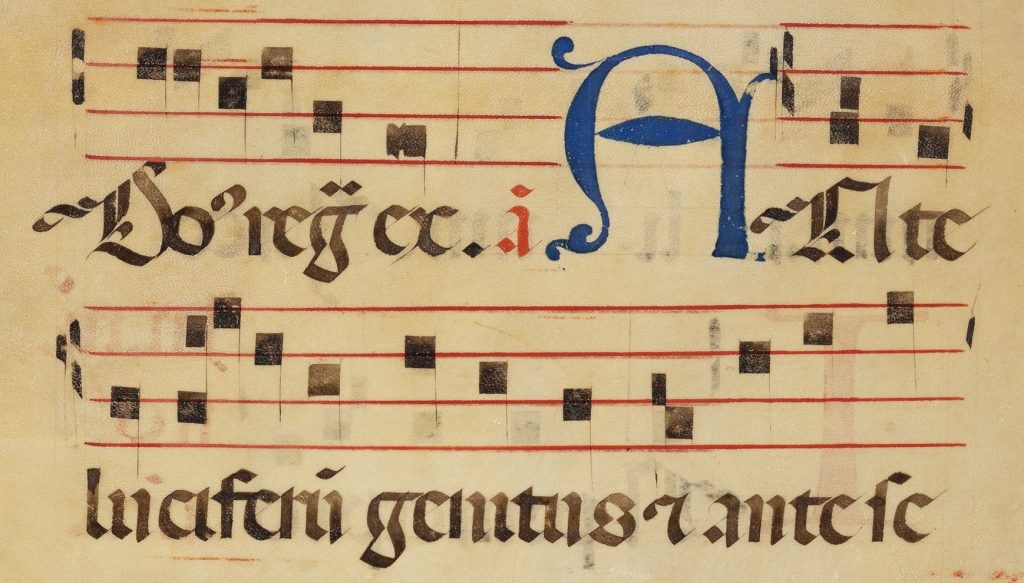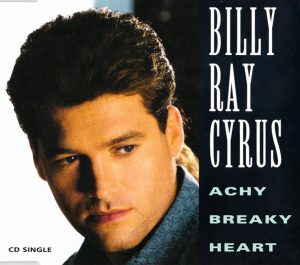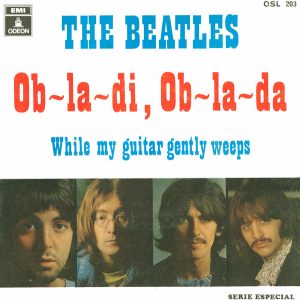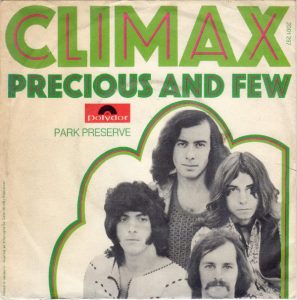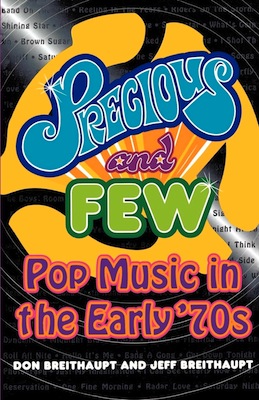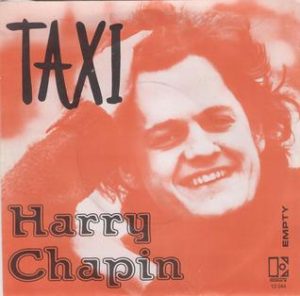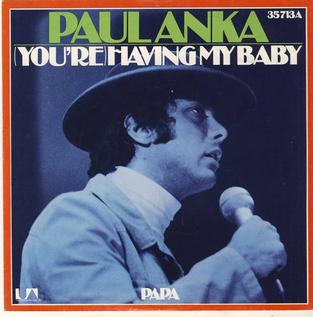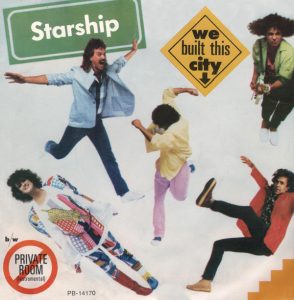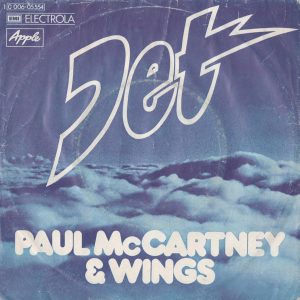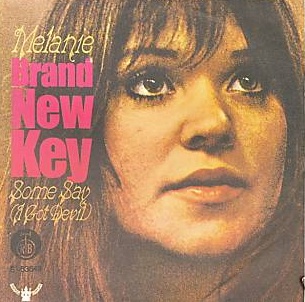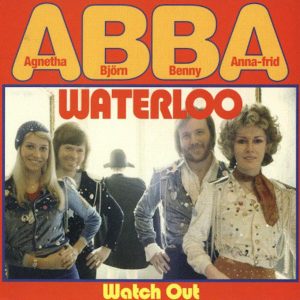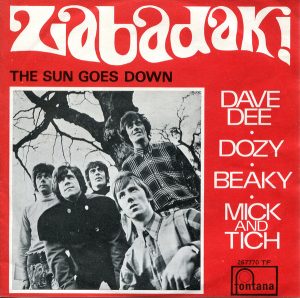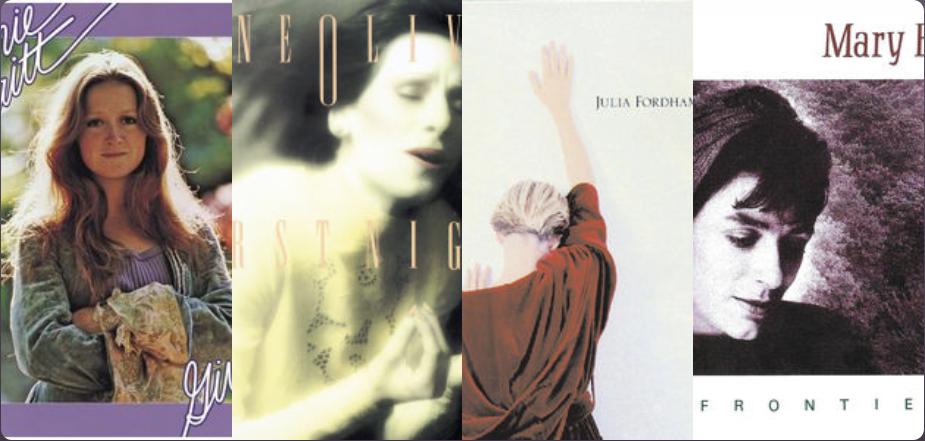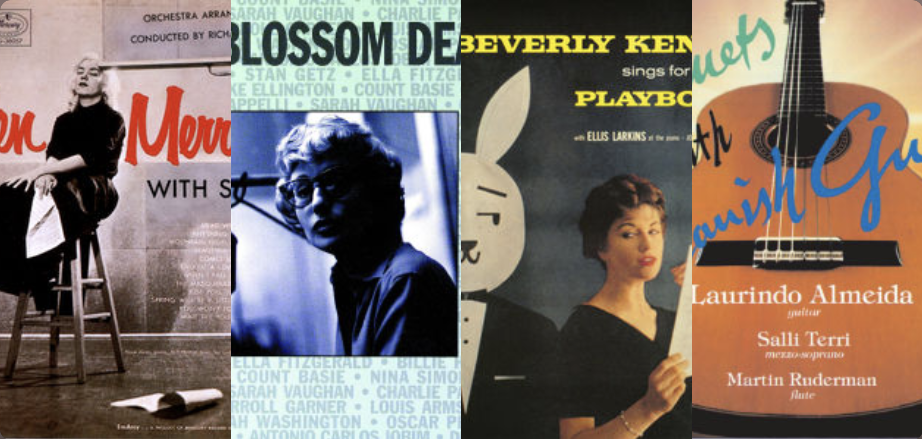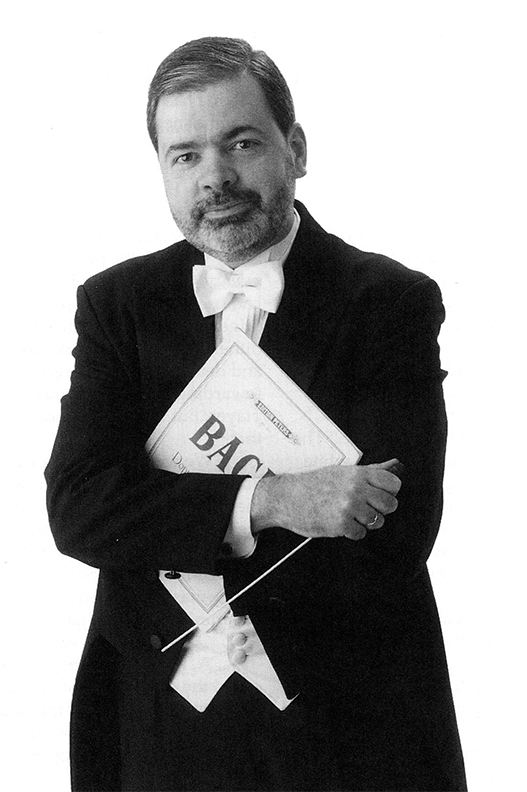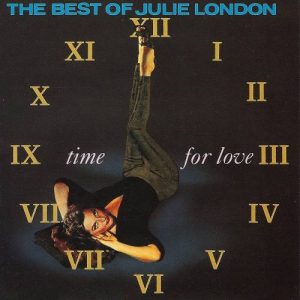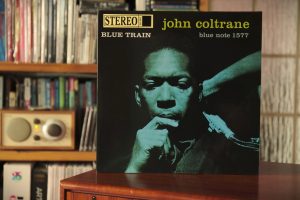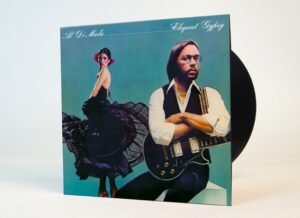Music manuscript, Northern Italy, circa A.D. 1350. (Courtesy of John Marks)
"Best" and "Worst" are often creatures of Pure Subjectivity—especially when it comes to literature, art, and music. Golf and baseball, in contrast, have objective metrics.
I know that I have a list of "The Songs I Love to Hate." After you read mine, please share yours in the Comments section. Explanations are not really necessary. But if you want to explain, please keep the explanations punchy and pithy.
Here are my "10 Baddest, Worstest-Ever Pop Songs" (in reverse order):
"Achy Breaky Heart," Billy Ray Cyrus. 1992
This is a single that never fails to call to mind Joseph Conrad's Heart of Darkness: "The horror! The horror!"
One of my favorite music-business "Insider Jokes" goes something like this:
[THIS IS A JOKE. IT DID NOT HAPPEN!]
Travis Tritt and Billy Ray Cyrus were doing a U.S.O. tour to entertain NATO troops in battle-torn Yugoslavia. Their convoy got lost and was ambushed where the road went through a very narrow valley. There was no room to turn around, so the convoy was boxed in.
The bandits and mercenaries disarmed the peacekeepers. The bandit chieftain then advised Tritt and Cyrus that, because they were not in uniform, they would be shot as spies.
However, the bandit chieftain assured them the bandits were "civilized" men. They would grant any reasonable last requests. He gestured at Cyrus.
Cyrus spoke with a quiver in his voice: "I never thought it would end this way, but I must face facts. Please have your men form up as an audience. I want to sing my #1 Billboard country-chart hit "Achy Breaky Heart," one last time, for them.
The bemused bandit chieftain shrugged, and laconically replied, "Very well."
Turning to Tritt, the bandit chieftain asked, "And you; what is your last request?"
Tritt muttered, "Shoot me first."
"Ob-La-Di, Ob-La-Da," The Beatles. 1968
To the existential horror that is "Achy Breaky Heart," add a healthy dollop of excruciatingly smarmy self-regard. And, ethical rigor—like that of a well-greased Slinky toy.
Mr. McCartney seems to have thought that he could get away with anything. (McCartney was the claimed sole writer; but the co-writing ad publishing agreement between Lennon and McCartney required that they share credit on all songs, regardless.)
This song is not only terrible; it culturally appropriates Reggae. And, badly. (Or, if you prefer: McCartney culturally appropriates Bad Reggae.) Even worse, McCartney used, without bothering to give credit, the signature catchphrase of Nigerian musician Jimmy Anonmuogharan Scott Emuakpor (also known as Jimmy Scott): "Ob la di ob la da, life goes on, bra."
(Today, I suppose that would be "bro.")
Upon hearing his frequently-repeated personal motto on the radio, Jimmy Scott tried to get co-credit as a lyricist, without success. (Of course, without success.)
John Lennon absolutely hated the song. So did George Harrison.
Lennon argued fiercely with McCartney over the resources (time and money) McCartney was perfectionistically squandering, to "create the most perfect performance" of a song that was (and always will be) irredeemable dreck.
Things in the studio got so bad, that engineer Geoff Emerick could not take it any longer. Emerick simply walked off the job.
Therefore, not without reason, McCartney is the only person to make two appearances on my list! (He'd have three entries; but, I think I have made my point.)
"Precious and Few," Climax. 1972
Sex sells.
Unfortunately, so does Self Pity.
(Just ask Olivia Rodrigo's Investment Advisor.)
It's so hard to pick the Achy-Breaky-est self-pity song! And, by the way, it's not all that easy being a journalist, either (sniff, sob)!
Where was I? Oh.
To attempt to identify the worst self-pity song is an infinite regress in a hall of mirrors. However, the stupidest self-pity song, that's easy! "Precious and Few"!
Just think for a moment about this lyric:
And if I can't find my way back home
It just wouldn't be fair
Precious and few are the moments we two can share
What's the backstory?
Was Young Romeo abducted by space aliens in a UFO, and later, after unspeakable violations of his person, dropped off in the middle of a cornfield in Iowa? At midnight?
One wants to get this young person's attention and inform him that unless circumstances make it truly impossible, finding one's way home for one's self is an important part of being an adult; and furthermore, whining that things are "unfair" is the polar opposite of adult behavior.
"Precious and Few" is such an annoyingly stupid song that it is also the title of a wonderfully clever and witty survey of the pop music released between the breakup of the Beatles and the arrival of disco: Don Breithaupt and Jeff Breithaupt's Precious and Few: Pop Music in the Early 70s (New York, St. Martin's Griffin, 1996).
A laugh-out-loud funny book. Highest recommendation.
In one sense, the "Self-Pity" Grammy® category should be dominated by Eric Carmen's "All by Myself"; and, truth be told, Carmen's lyrics are rather maddening.
However, as you YouTube addicts now all know, the music was stolen from Sergei Rachmaninoff; and therefore, the music is actually rather good.
"Taxi," Harry Chapin. 1972
The first-person proto-slacker-hero, protagonist/narrator of Harry Chapin's story song "Taxi" might be a blue-collar working stiff; but, he is a man with multiple outside interests—getting high, and getting stoned.
Let's assume that the story is totally a work of fiction. Even so, perhaps it was not exactly gentlemanly for Chapin to suggest that his high-school honey dropped a salt-of-the earth guy with a heart of gold (who just happened to be named "Harry"), to marry for money.
In today's money, the tip that "Sue" gave "Harry" for a brief taxi ride is over $100. The only thing that rings true to me in this song is that "Harry" stashed the bill in his shirt (pocket).
Furthermore, in the Paul McCartney/Eric Carmen Pro-Am Classic Tournament for Criminally-Privileged Entitlement, a strong contender is Chapin's often-alleged "borrowing" of the falsetto verse ("Baby's so high that she's skying") from Dead Poetess Sylvia Plath.
"(You're) Having My Baby, Paul Anka. 1974
This lamentable song was voted the #1 "Worst Song of All Time" in a poll conducted by CNN.com in 2006.
Boris Goldovsky told me the story of having known an old woman who claimed to have heard the legendary Russian operatic bass singer Feodor Ivanovich Chaliapin (d. 1938) sing a song in a Russian émigré restaurant.
Half the people kept eating and talking; and at the end, only a few clapped. Perhaps that was because they thought that Chaliapin was just some old guy who'd had a little vodka, not realizing he was an international opera superstar.
Boris told me that the old woman ended her story by exclaiming, "The people! What do the people know?"
The relevance being, in 1974, "(You're) Having My Baby" was Paul Anka's first #1 single since 1959.
Which, actually, is an anecdotal datum that supports my long-held conviction that many #1 hits are not #1 hits because of their musical quality.
They are #1 hits because some catchy aspect grabs the ears of people who are not serious about music, and who are not regular record buyers. Whatever is catchy about the song motivates them to make one of their rare record purchases.
I can think of no better examples of what I am talking about, than the facts that in 1972, Melanie Safka's abominable and detestable "Brand New Key" (the "Roller-Skate Song") spent two weeks in the #1 position, while Eric Clapton's band Derek and the Dominoes' single "Layla" spent only one week in the Top Ten. Down in the #10 position.
"Layla," of course, is many peoples' choice as the Greatest Rock Song of All Time.
I think that that tells you all you need to know about the usefulness of Billboard's Hot 100 chart's #1 position as anything other than a snapshot of one week in a turbulent and not always well-informed marketplace.
The people! What do the people know?
"We Built this City," Starship. 1985
The psychological aura of much popular music is Narcissism (e.g., "(You're) Having My Baby.")
However, every now and then, Megalomania rears its ugly head.
No, idiot, you and your colleagues personally did not build this (or any other) city, and there is no city "built on rock and roll."
So here we have another song that is at best mediocre, played and sung by people whose best work was at least a decade behind them, whining all the way to the bank to deposit some nameless faceless corporation's reward for having a #1 single.
Which single now resides on many "Worst Song Ever" lists.
The people! What do the people know?
"Jet," Paul McCartney and Wings. 1973
The laws of Quantum Mechanics suggest that, at least in this Universe, the only way for Paul McCartney to be more self-absorbed than he is now, would be if he were to be constituted entirely and only of equal parts Paper Towel and Water.
And Jet I thought the major was a lady suffragette
If a garage band from Fresno had released this narcissistically self-referential Word Salad, it would have sunk like a stone. But, perhaps no rock critic felt like risking his regular paycheck by summoning the moral courage to declare that The Emperor Has No Clothes.
"Brand New Key," Melanie Safka. 1971
It's hard to miss the creepy sexual innuendo-metaphors about female and male puberty. And, if that were not enough, Melanie's singing alternates between hand-grenading the pitches, and making a weird strangled gargling sound.
Just one more #1 chart-topping hit that later made its way to the "Worst-Of" lists.
The people! What do the people know?
"Waterloo," ABBA, Inc. 1974
There's no innuendo to parse here.
This song flat-out states that date rape is OK…at least as long as the girl later decides that she can't live without you.
My, my, I tried to hold you back but you were stronger
Oh yeah, and now it seems my only chance is giving up the fight
And how could I ever refuse
I feel like I win when I lose
In 2005, this song (peaked at #6 in the US) was voted the best-ever Eurovision song. Perhaps they just liked the culturally-appropriated American "yakety-sax" arrangement so much, that they never paid attention to the words.
Sigh.
"Zabadak!" Dave Dee, Dozy, Beaky, Mick & Tich. 1967
Perhaps I am making a random bunch of scousers do penance for the collective sins of the South African and United States music industries; but… after all, this song is a cash-in on a rip-off.
In 1939, Solomon Linda, an illiterate South African street and saloon singer, recorded a song he had made up about his years as a herder, protecting cattle in the back country.
The song had only two words: "Mbube" (pronounced EEM-boo-beh), which means "Lion;" and "Zimba," which means "Stop." The brilliant aspects of the song are the Linda's soaring soprano voice, and the rhythmically-accented four-part acappella harmony.
Solomon Linda single-handedly established the "Zulu-acappella pop-song" musical genre. Indeed, the genre, the most famous recent exponents of which have been Ladysmith Black Mambazo, is called "Mbube."
After Mr. Linda sold the copyright in his composition for what was about 87 cents in today's money, the song took on a life of its own.
Pete Seeger's version "Wimoweh" (so titled, perhaps because Mr. Seeger did not see fit to ask anyone how to pronounce the original Zulu title) was one of the longest-lasting hits of the US Folk-Music movement.
(Pete Seeger is one of my least-favorite characters in the entire history of American Music. Seeger was an ardent pacifist… that is, until the Nazis invaded his beloved Soviet Union. He then began cranking out pro-war songs. Apparently, while not even blushing.)
The currency floodgates should have opened with The Lion King (both the play and the movie). However, they did not.
Fortunately for Mr. Linda's descendants, an obscure (I assume South African) law provided that the copyright reverted to Mr. Linda's estate 25 years after his death, with the Disney Company eventually doing the right thing, as explained HERE.
But, back in 1967, fakey-do Multi-Culti was all the rage, with new suckers, erm, I mean "with-it" record buyers, born every minute. "Guantanamera" was a major hit in the US, despite its being basically a catcall song with some poetic verses added: "Hey! Pretty woman from Guantanamo!" And so on.
Dave Dee, Dozy, Beaky, Mick & Tich cashed in on the success of "Wimoweh" by playing pseudo-African rhythms on home-made, pseudo-African percussion instruments, with a chorus consisting of pseudo-African nonsense words, sandwiching pseudo-New-Age piffle:
Zabadak, Zabadak
Kara-kakora ka-karakak;
Zabadak
Shai shai skagalak
Look for meaning not in words
But in the way you're feeling
Blecch. If they actually meant the English lyrics, that would be possible only if they never thought them through. Not that a counter-argument is necessary; but, Neo-Nazis feel passionately about their own sick beliefs. That doesn't make those beliefs acceptable.
On the other hand, on a sidewalk beside the Brown University Quadrangle I recently saw taped to a tree trunk a sign that said "Reject Critical Thinking." So, the song "Zabadak!", as horrible as it is, has had a long-lasting cultural impact.
So Near, Yet So Far
I am informed by a Beatles expert whose encyclopedic knowledge I envy (thanks, Ritt!), that, years after the White Album was released, John Lennon told a journalist that "Ob-La-Di, Ob-La-Da" was so bad that it "could have been a Wings song."
Amen.
Paul McCartney wrote so many bad songs that he is "the gift that keeps on giving," to lists such as this one. "Ebony and Ivory" was on my shortlist.
When it comes to "My Humps," by the Black Eyed Peas (2005), I am 100% with music critic Shaun Bruce, who stated that "My Humps" might "actually represent the nadir of human achievement."
Not Even Close, But I Understand if You Feel That Way
Gordon Lightfoot's "Wreck of the Edmund Fitzgerald" might show up on some peoples' Worst Lists. I can understand why. Perhaps over-exposure is part of that. But, I think that his impulse was praiseworthy. Furthermore, it seems that the survivors of those who perished (in a preventable disaster) truly appreciated the gesture.
"MacArthur Park" (written, arranged, and produced by Jimmy Webb; sung by Richard Harris) is no stranger to the worst-ever lists. Equal parts psychedelic, bombastic, and "Why did she leave?" (#pityparty); it's probably too much for most people, at this remove of time.
However, if, back then, you cared passionately about the future of rock, "A Whiter Shade of Pale," "Pleasures of the Harbor," and "MacArthur Park" were pretty much all you had to cling to. OK, "In the Court of the Crimson King," too.
BTW, one story has it that Jimmy Webb thought so much of a former girlfriend that he attended her outdoor wedding, and…it started to rain, wedding cake and all.
I'll stop there, so that you can share your worst-ests in the Comments.
Here's the Qobuz playlist…if you dare.




